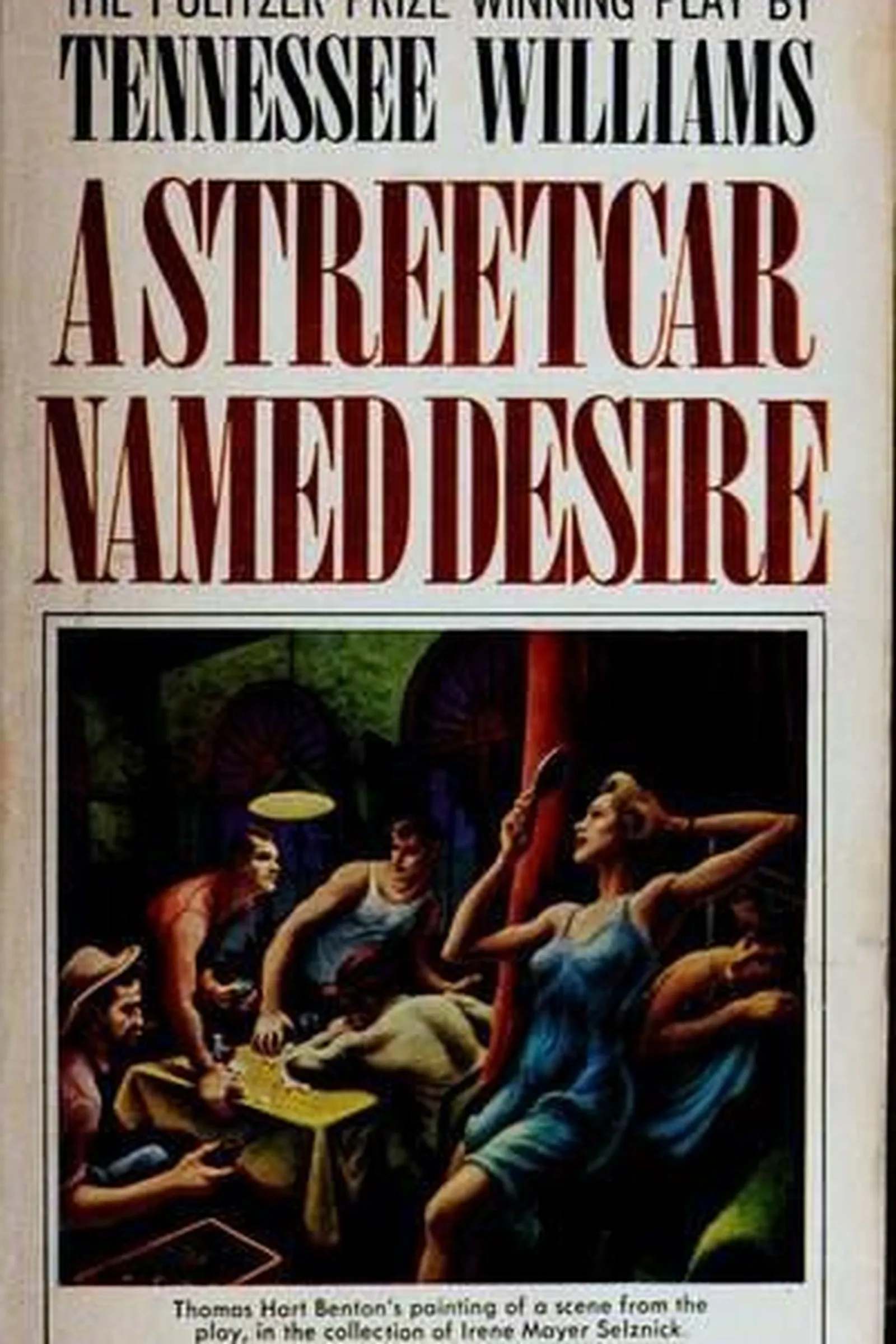A Streetcar Named Desire, Tennessee Williams, 1947
- Author: Tennessee Williams
- Genre: Drama
- Publisher: New Directions
- Publication Year: 1947
- Pages: 160
- Format: Paperback
- Language: English
- ISBN: 978-0140481341
- Rating: 4,3 ★★★★★
A Streetcar Named Desire Review
About
Tennessee Williams’s A Streetcar Named Desire (1947) is one of the defining works of 20th-century American theater—a collision of illusion, desire, and decay set in postwar New Orleans. Williams captures the fragility of dreams and the violence of reality through language that burns and bleeds. It’s both intimate and operatic, a story of survival and self-delusion played out between broken souls.
Overview
The play follows Blanche DuBois, a fading Southern belle, who arrives at her sister Stella’s small apartment after losing her family estate. There she meets Stella’s husband, Stanley Kowalski—a man whose raw energy and bluntness strip away Blanche’s pretenses. The tension between refinement and realism, fantasy and fact, fuels a tragedy as poetic as it is brutal. Williams’s dialogue, full of rhythm and heat, makes every line feel alive.
Summary
(light spoilers) Blanche clings to old manners and illusions of gentility, while Stanley embodies the new, rougher America. Their mutual destruction feels inevitable. Stanley’s suspicion and cruelty expose Blanche’s secrets, while her fragile psyche unravels under the weight of truth. Stella, torn between sister and husband, becomes the play’s quiet tragedy—a witness forced to choose comfort over conscience. The famous final line, “I have always depended on the kindness of strangers,” lands not as hope but as surrender. Williams ends on the echo of broken illusions, and a world that refuses to be kind.
Key Themes / Main Ideas
• Desire and decay — yearning as both life force and poison.
• Illusion versus reality — survival through lies and fantasy.
• Gender and power — cruelty disguised as dominance.
• Class and change — the old South colliding with the new America.
• Madness — fragility mistaken for weakness.
Strengths and Weaknesses
• Strengths — Lyrical, psychological, and timelessly emotional.
• Strengths — Williams fuses beauty and brutality in every scene.
• Weaknesses — Some characters verge on archetype; melodrama risks excess.
• Weaknesses — The raw emotion can overwhelm first-time readers.
Reviewed with focus on themes, audience, and takeaways — Tennessee Williams
| pa_author | Tennessee Williams |
|---|---|
| ISBN | 978-7-108-84276-4 |
| pa_year | 1959 |
| Pages | 341 |
| Language | English |







